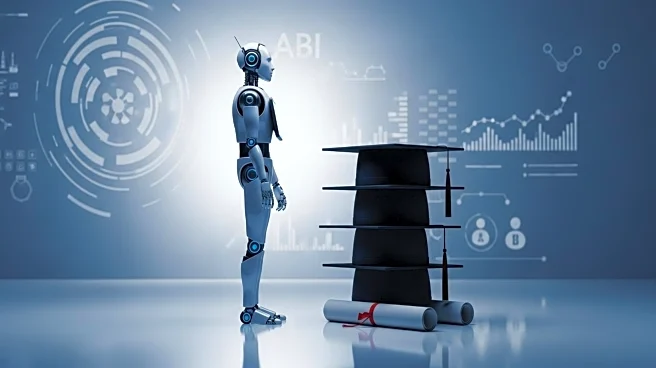What's Happening?
Federal Reserve Chair Jerome Powell has suggested that artificial intelligence may be contributing to rising unemployment rates, particularly among young graduates. During a press conference, Powell acknowledged the uncertainty surrounding the link between AI and employment trends but noted that AI could be a factor in the slowdown of hiring. The latest jobs report indicated a significant drop in job additions, prompting the Fed to cut interest rates. Powell's comments align with concerns from economists who have urged the Labor Secretary to prioritize data collection on AI's impact on labor markets.
Why It's Important?
Powell's remarks highlight the potential disruptive impact of AI on the labor market, especially for early-career workers. As companies increasingly automate tasks, the demand for entry-level positions may decline, affecting young graduates' employment prospects. This trend could lead to broader economic implications, including shifts in workforce dynamics and challenges in addressing unemployment. The acknowledgment from the Fed Chair underscores the need for policymakers to consider AI's role in shaping labor market outcomes.
What's Next?
The Federal Reserve and other economic institutions may intensify research efforts to better understand AI's impact on employment. Policymakers could explore strategies to mitigate potential negative effects, such as promoting skills development and adapting hiring practices. The ongoing dialogue between economists and government officials may lead to initiatives aimed at addressing AI-related labor market challenges.









